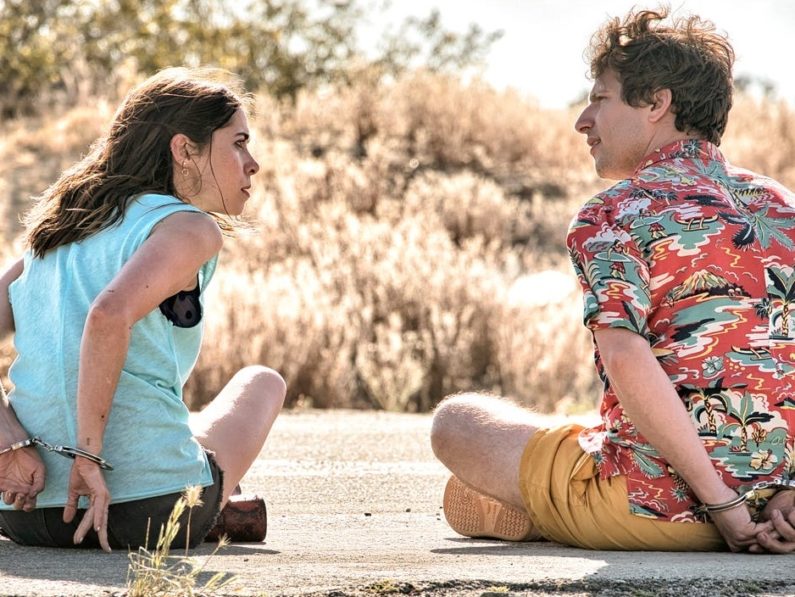To consider the merits of the Hulu original Palm Springs, we must first acknowledge its two complementary contexts. Both are fitting for this moment. Palm Springs encapsulates the era of completely personalized culture in which we find ourselves. We can blame this mostly on COVID-19, but also a little bit on ourselves. Even before it became unthinkable to gather in movie theaters, we’ve been doggedly forcing content creators to accommodate us individually. So, as a child of—and please forgive the use of a now hackneyed phrase—our “new normal,” Palm Springs is perfect for home-first viewing. It’s not just that the big star of the film, Andy Samberg, is an established small screen icon. Or that the visual grammar of the movie is highly concentrated and, because of the script, recursive and almost episodic. Palm Springs works well on your TV because it’s smart and tight and narrowly focused on just a few key people. Like theater. Or like an old-school TV show.
The second critical element is the plot and how it compares to other similar stories. Palm Springs is a time loop movie. Like Groundhog Day, of course. But also like Happy Death Day and Edge of Tomorrow and Before I Fall and the wonderful but little known indie gem from 2017, The Endless. There are tons of others and it’s always fascinating to see how directors and actors navigate a thoroughly mapped space like this one. For its part, Palm Springs doesn’t offer much in the way of new thought on the topic. Nor are any of the gags particularly fresh or groundbreaking. But the performances are very good. J. K. Simmons is his usual scene-robbing self (they should have used him a lot more!). Cristin Milioti is fierce and manic but also sweet. And Samberg is, well, he’s Andy Samberg. Exactly what you expect and exactly what you want. He’s goofy and endearing and, at the last possible moment, secretly, genuinely wise. The supporting cast doesn’t get much to do but, as a backdrop, they are well-scripted and on their marks.
Speaking of Milioti, the whole thing is seen most importantly through her eyes. The central plot device is revealed to us at the same time as her character Sarah. And it’s Sarah’s reactions to a new reality that direct all the action to come. Samberg’s character Nyles reads first as Sarah’s reluctant guide and loop veteran, but that dynamic quickly shifts as she begins to ask big questions about their predicament. Later, she decides to figure out how to undo it. It’s a joy to go through all of it with her and when she’s off-screen for a while, you really miss her. This is not to say that Palm Springs is perfect, or even excellent. The architecture of the story is fairly standard rom-com fare, but the building materials were always good enough to keep me watching and, more importantly, keep me smiling.
Time loop movies live and die (almost always literally) by how many times they push the big red reset button. It’s an easy trick to overplay. But there’s also a certain overall slow-fast-slow rhythm to it that most viewers unconsciously expect. Thankfully, first-time feature director Max Barbakow seems to have a knack for that balance. And his reluctance to linger too long in any one iteration gives his actors plenty of space outside of the grand conceit to explore the tiny mysteries of their connection.
Palm Springs proves that a common story can be worth telling again and again and again and again, if you tell it well.






